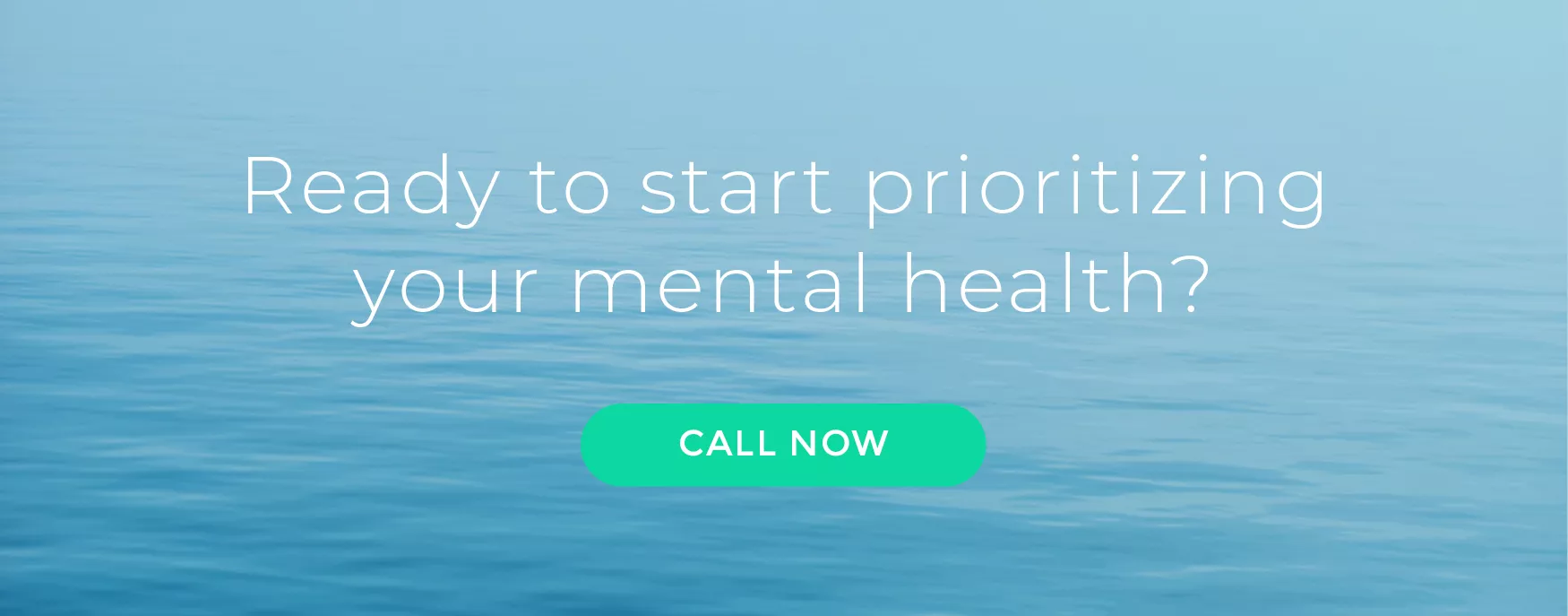Phobia Treatment
Are you deeply afraid of something that others are not? If so, you may be living with a phobia.
You’re not alone. Millions of people around the world are living with phobias that keep them from doing things they want to do.
If you have a fear that is holding you back in any way – whether it’s getting on an airplane or going into a crowded room – we can help provide you with the tools you need to face your fears head-on until they no longer hold power over your life.
Take the first step today and call Amend Treatment at (833) 912-6363 to learn more about phobia treatment.
Overview
While fear is a natural and healthy response to dangerous situations, phobia disorder is an anxiety disorder in which an individual has an irrational fear of an object or situation.
There are many different phobias, depending on the person’s fears, but phobias all share one common trait – the phobia interferes with daily life and activity levels.
Some phobias, such as acrophobia (fear of heights) and arachnophobia (fear of spiders), may be easier to treat than others because they can usually be treated with therapy and education.
Others phobias, such as phobophobia (fear of phobias), are more difficult to treat. Fortunately, phobia treatment is available and effective.

Symptoms
There are several common symptoms of phobias. These symptoms may vary from person to person depending on the phobia.
The most common phobia symptoms include:
- Feelings of terror and helplessness when exposed to phobia’s trigger(s)
- Repeated thoughts about phobia’s object or situation
- Frequent urges to avoid phobia’s triggers
- Strong desire to escape phobia’s triggers
- Inability to function normally due to phobia symptoms
Types
There are many types of phobias. Some phobias are so severe that they can interfere with a person’s ability to perform their job or maintain healthy relationships.
In some cases, an individual may even experience two or more phobias simultaneously.
Some of the most common phobias include the following:
Social phobias
Social phobias are often triggered by the fear of acting in a way that will be embarrassing. This type of phobia can negatively impact your ability to function normally around other people. If you find yourself worrying about embarrassing yourself, even around your closest friends and family, you may have social phobia.
Agoraphobia
Agoraphobia is the fear of open spaces. Many people with agoraphobia often feel uncomfortable in social situations, making it difficult to differentiate from social phobia.
Specific phobias
Specific phobias involve the fear of a particular object or situation. People with specific phobias often realize that their phobia is irrational, but are still unable to control or diminish their phobia. An estimated 9.1% of U.S. adults live with a specific phobia.
Acrophobia is the fear of heights. This phobia can cause intense, debilitating fear in people who suffer from it.
Pteromerhanophobia is the fear of flying. This phobia can be so severe that it prevents an individual from even getting on a plane. People with this phobia will often prefer alternative forms of transportation, regardless of the distance.
Claustrophobia is the fear of being in small, enclosed spaces. Many people with claustrophobia can become anxious when riding in an elevator or driving a car due to the feeling of being trapped.
Entomophobia is the fear of insects. Many individuals with this phobia have a heightened fear of bees, wasps, and other stinging insects.
Arachnophobia is the fear of spiders. For some people with this phobia, the fear is so strong that they can’t even look at images of spiders or talk about them without becoming terrified.
Ophidiophobia is the fear of snakes. Snakes are often associated with danger, which is why phobias often develop around them.
Cynophobia is the fear of dogs. Many people with this phobia also have a phobia of rabies, which makes this phobia even more intense.
Astraphobia is the fear of storms (thunder and lightning). This phobia is common among children, though some adults develop the phobia as well.
Trypanophobia is the fear of getting needles. Many people with this phobia also have a phobia of blood, which makes it even more difficult to get treatment for the phobia.
Mysophobia is the fear of germs and dirt. This phobia can cause a person to be overly concerned with the cleanliness of their food, home, and body.
Causes
There are many theories as to why phobias develop. While scientists aren’t 100% sure on the exact cause, researchers have some ideas about phobia development.
In most cases, phobias develop from a learned response or learned behavior. For example, if someone told you that dogs are dangerous when you were little and you saw them bite someone, you would likely develop a phobia of dogs.
Anxiety disorders may also cause phobias to develop because anxiety can trigger phobia symptoms. Some phobias are believed to be genetic as well. Because phobias often run in the family, it’s possible that your parents or grandparents developed phobia genetics that was passed down to you.
Treatment
Many phobias can be successfully treated with therapy. Therapy works by teaching the phobic individual how to cope with their phobia and eventually overcome it altogether.
Medication may also be used as a treatment for phobias, especially if an individual is also suffering from depression or another disorder that could cause phobia symptoms.
Self-help techniques are also possible phobia treatments. The phobic individual can use several different techniques to cope with their phobia symptoms, such as breathing exercises, positive visualization statements, and more.
Phobia Treatment at Amend Treatment
If you’re tired of living with persistent and excessive fear and feel trapped in your own life, you may find phobia treatment helpful.
Living with a phobia can be debilitating. You may feel like you’re trapped in your own life, unable to do the things you love. You’re not alone. We understand how scary it can be to face your fears, but our team of experts will work with you every step of the way to make sure you get the help you need.
Contact Amend Treatment to learn more about phobia treatment today.

